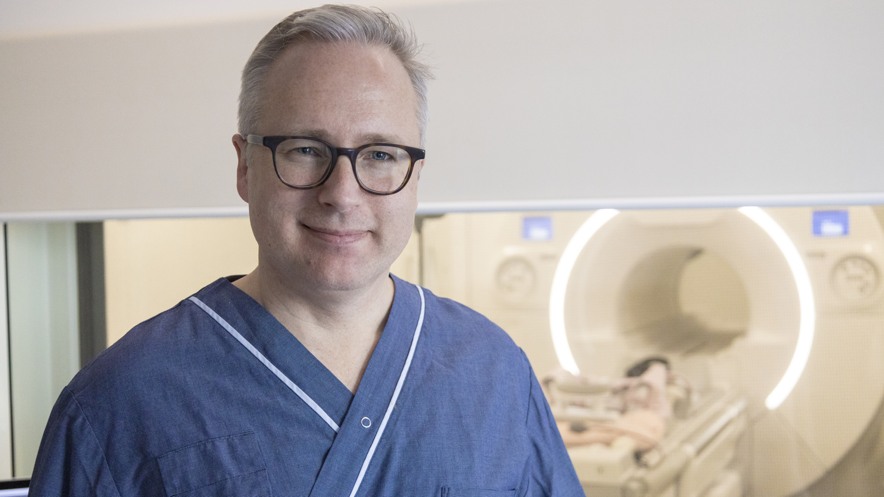New study shows: AI-MRI integration significantly improves early detection of hidden breast cancers

Mammography is the most widely used method for breast cancer screening and has proven effective in reducing breast cancer mortality through early detection. Despite this, about 30% of cancers are detected due to symptoms that arise between regular screening intervals. These cancers are often more aggressive and have a poorer prognosis.
Therefore, there is a need for complementary technical solutions. The randomized clinical trial ScreenTrustMRI, led by Fredrik Strand at Karolinska University Hospital and published in Nature Medicine, investigated a newly developed AI technology for evaluating mammogram images and identifying women at high risk for missed cancers. Women who received a high AI-based score (the top 6.9%) were randomly offered additional MRI screening. The AI method, developed in collaboration between research groups at KI and KTH and funded by Medtechlabs, the Breast Cancer Association, and others, uses deep learning to recognize more subtle patterns in images compared to the traditional method based on radiologists' visual assessment of mammographic density in four categories. A total of 36 cancers were detected among 559 women who had previously received a clean bill of health from standard mammography. – says Fredrik Strand, Radiologist at Karolinska University Hospital and Researcher at the Department of Oncology-Pathology at Karolinska Institutet.
– says Fredrik Strand, Radiologist at Karolinska University Hospital and Researcher at the Department of Oncology-Pathology at Karolinska Institutet.
Compared to results from a previous clinical study based on mammographic density, the AI method was about four times more effective in detecting cancer, with 64 detected cases per 1000 MRI screenings compared to 16.5 cases per 1000 in the earlier study. This AI-based method has proven to be highly promising for improving the detection of invasive and multifocal cancers, highlighting its potential to complement traditional mammography. By focusing on about 7-8% of screening participants, this method makes it economically feasible to use MRI as a supplementary screening tool, with a cost per detected cancer case comparable to mammography.
“Now that the study is complete, we must pause the method because it needs approval from the European Medicines Agency for routine use. Additionally, the software needs to be packaged and quality assured to become a product, and for this, we have received continued funding from the Wallenberg Foundations,” – says Fredrik Strand.
The results from the ScreenTrustMRI study offer hope that AI technology could play a crucial role in the future of breast cancer screening. By integrating AI-based assessments into the existing screening process, more cancer cases can be detected early, ultimately saving more lives.
Read the study here.
____________________________________
Text: Dylan Collin.